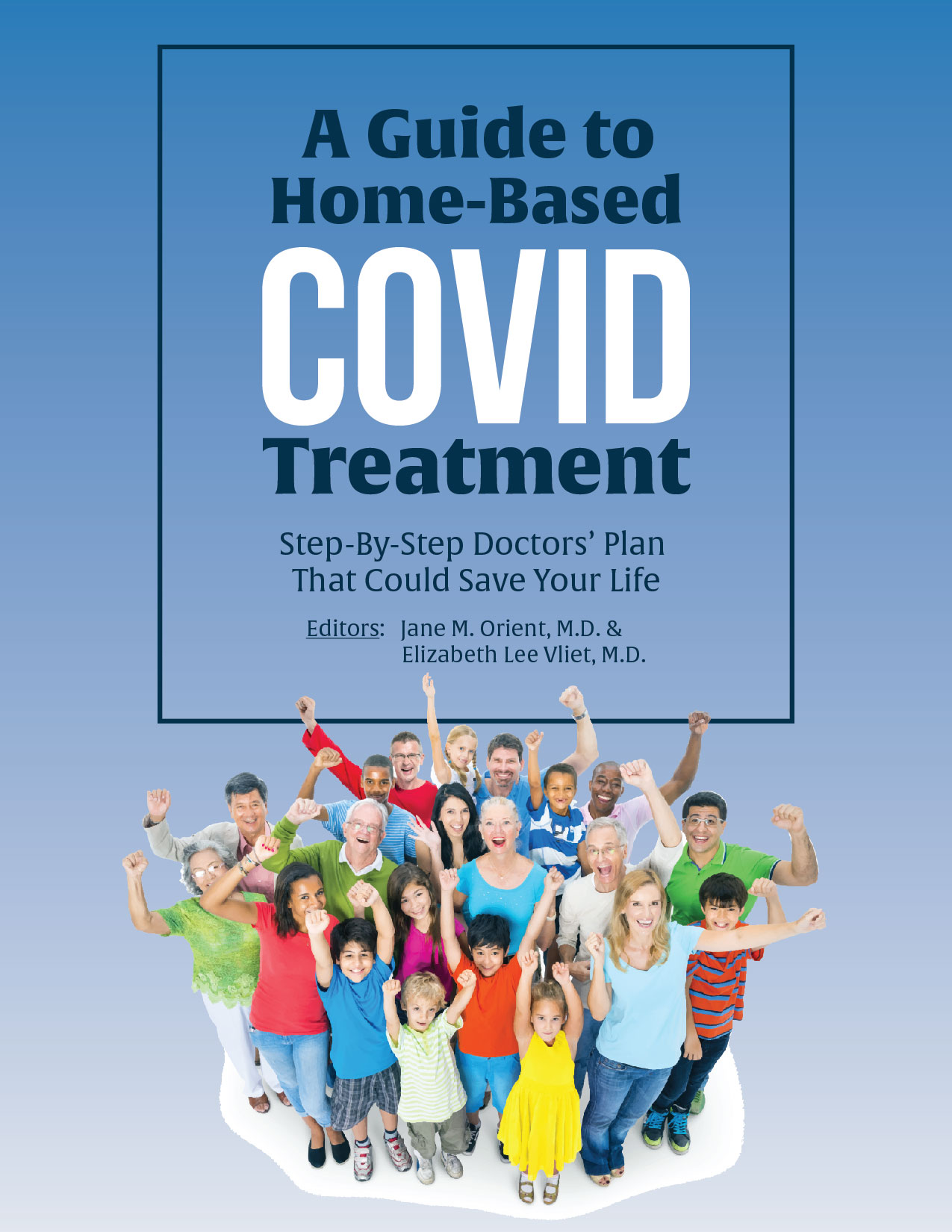Source: AAPS Online
Senior Editor:
Jane Orient, MD, Internal Medicine Physician, Executive Director,
Association of American Physicians and Surgeons,
President, Doctors for Disaster Preparedness
Consulting Editor:
Peter A. McCullough, MD, MPH, FACP, FACC, FCCP, FAHA, FNKF, FNLA, FCRSA
Internist, Cardiologist, and Epidemiologist,
President, Cardiorenal Society of America
Editor/Writer:
Elizabeth Lee Vliet, MD, Preventive Medicine
Past Director, Association of American Physicians and Surgeons,
Member of AAPS Editorial Writing Team
Technical Editor:
Jeremy Snavely, Business Manager
Association of American Physicians and Surgeons
Disclaimer: This booklet does not provide individual medical advice or prescribe treatment but is provided as an educational service for patients and their families to know what options are available and widely used for many conditions. Patients should consult the physicians of their choice for individual medical evaluation and recommendations for treatment tailored to individual needs.
INTRODUCTION
A Guide to Home-Based COVID treatment is built on the rapidly accumulating peer-reviewed published medical research, written by practicing physicians with decades of experience treating patients with all kinds of illnesses. We provide a step-by-step guide to medically sound early treatments that have a reasonable probability of success in this emergency pandemic. There are oral medications that are approved for other conditions, but not yet proven to be efficacious specifically for COVID-19 by the U.S. Food and Drug Administration.
In the global pandemic emergency, large scale randomized clinical trials have not been feasible in the face of such critical illness. The National Institutes of Health at this time does not recommend treatment outside of the hospital because there are no current medications specifically approved for outpatient COVID-19 treatment, even though the mortality rate once patients require hospitalization is unacceptably high.
Thus, treatment administered outside of the hospitalized setting should be under the supervision of a physician or licensed medical professional who is knowledgeable in the use of the medications and the monitoring approach for ambulatory, home-based COVID-19 as described in this guide. Patients who worsen in any way should seek
emergency room evaluation immediately.
There are four major pillars to infectious disease pandemic response:
1) Contagion control (stop the spread of the virus)
2) Early ambulatory, home-based treatment
3) Late-stage treatment in hospital
4) Vaccination
This guide will focus on the pillar of early, ambulatory, home-based medical treatment overseen by your physician, using a combination of available medicines, already FDA-approved for other medical conditions, and widely used in clinical medicine every day.
Please download the guide here: CovidPatientTreatmentGuide.pdf
Related: HCQ Protocols from America’s Frontline Doctors
HCQ is effective for COVID-19 when used early: analysis of 132 studies
How hydroxychloroquine works at the cellular level
Hydroxychloroquine linked to reducing ICU admissions among hospitalized COVID-19 patients by 53%

